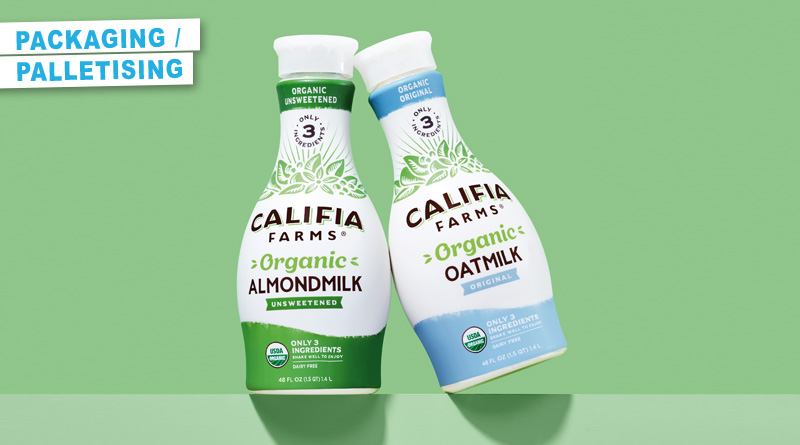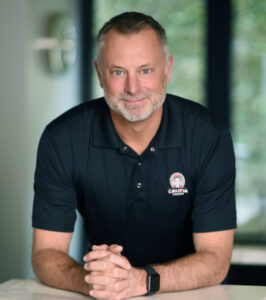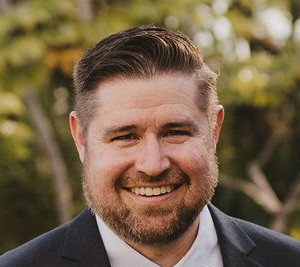Delivering value – fast
Delta Engineering helps smooth the flow and boost efficiency of new bottle blowing lines
Califia farms invested in automation to save time, cut costs and boost environmental performance in its growing non-dairy drinks production.
When Californian company Califia Farms decided to install KHS automated bottle blowing lines, it was recommended to contact Belgian company Delta Engineering for its bottle conveying systems. Delta had recently opened a facility in Georgia, USA, so it was able to design a system that integrated smoothly with the preform stretch blow-moulding line and provide in-country expertise and support.
The strongly rising demand for plant-based alternatives to dairy milk, such as oat, almond and coconut milk drinks, has seen Califia Farms grow rapidly in recent years. Non-dairy ready-to-drink coffee and creamer sales spiked nearly 50 per cent in 2021, compared with the year before, and plant-based milk products are up 25 per cent from pre-Pandemic levels.
Against this background, Califia successfully placed a multi-million US Dollar funding round in 2020, part of which it put to good use in modernising and upgrading its main production facility, near Los Angeles, California.
Environmental responsibility
Califia was founded in 2010 by the late Greg Steltenpohl and is now led by CEO Dave Ritterbush, has always had a focus on environmental responsibility. It does not grow its raw materials but sources them as locally as it can. Over 80 per cent of the almond milk it buys are grown and processed within 20 miles of its bottling lines, for example. The investment in the new lines is another step on the road.
“The project involves the complete transition of our facility’s bottling lines, from using pre-blown bottles to blowing our own on-site. The objectives were two-fold: to achieve cost savings and to reduce emissions,” said Tyler Crow, Senior Plant Engineer. “Previously, we used a depalletiser to feed our packaging lines with the preblown bottles. As our volumes grew, this became more and more expensive – we were receiving double-digit truckloads of empty bottles each week.” Califia now fills approaching 60 million bottles a year, selling them on to its major markets in Los Angeles, New York, other parts of the USA and further afield. Transporting 60 million preblown bottles is an expensive and environmentally insensitive way of, essentially, moving fresh air, although installing a preform blowing line could be seen as adding complexity to an operation that had previously been simply about mixing and filling.
Objectives: cut traffic, cut carbon, cut costs and improve supply security
“When we ran the numbers, it quickly became clear that we could save a lot of money and carbon emissions by blowing bottles from preforms here, on site. We would be able to get 90 per cent of those trucks off the road,” Tyler explained.
The discussion of possible gains from automation and blowing on-site became more urgent during the Covid pandemic period, when reliability of bottle supplies was severely impacted across the whole food and beverage industry. In the USA and across the world. Califia handled the situation pretty well and was able to maintain fill and delivery schedules at 98 per cent, according to an interview Dave Ritterbush gave in August 2021, but achieving that level required a lot of agility and potentially expensive alternative sourcing, including airfreighting supplies.
Automate to accelerate and update
The decision was made to invest in two integrated bottle production lines, built around two KHS Blowmax B12 inline blow moulding machines. The bottles themselves were to be redesigned, to make the whole operation effective across KPIs including environmental performance and cost reduction. It was KHS that suggested Califia talk to Delta Engineering.
“The project involved installing a high-speed takeout conveyor from the blow moulder and a chain conveyor buffer, to store bottles in case the downstream line goes down, for whatever reason,” said Danny Stevens, Senior Sales Engineer USA with Delta Engineering, based in the USA facility in Norcross, north-east of Atlanta, Georgia. Those two core machines were complemented with blow moulder take-outs, vacuum pumps and line controllers. The lines were also equipped with ionisers, to reduce static electricity, and Star Knobs on the guard rails to reduce changeover times. “They have to have room on the line to be able to store bottles, although it does have some internal capacity. Whenever a holdup occurs and is then cleared, the buffer will empty out and then the whole line will start up again.”
Managing bottle blowing flow
KHS was in the process of creating the line when Delta Engineering was approached.
“We have bottles coming out of the machines at high speed and they need to transition to a table-top conveyor without falling over,” said Tyler. High speed conveying carries the risk of damage during operation, from falling over or jamming because of production interruption. The buffer capability maintains a smooth flow in the event of production stoppage. “Delta’s equipment is responsible for transporting the freshly-blown empty bottles from the blow-moulding machines to the fillers. Its solution uses a vacuum conveyor to help achieve a smooth transition. I was very pleased with the result.”
Califia got in touch with Delta in May 2022 and they visited the factory to discuss the specific needs and layout requirements within a matter of days. Tyler specifically mentioned their quick turnaround of drawings and quotes for the equipment. The order was placed in July 2022; in December, just five months later, he flew over to Delta’s head office in Ophasselt, about 30 km (19 miles) West of Brussels, in Belgium, for the factory acceptance test.
Delta’s professionalism delivers value – fast
“I was very impressed with their equipment manufacturing facility and on-site capabilities there,” said Tyler. Delta was so quick it had everything prepared from its side before the rest of the line was ready. Installation was finalised and completed in May 2023, with the new equipment fired up and put into production in June. It has been a major success.
“The cost savings and carbon emission reductions have been in line with expectations. Current estimates are that we will save around 838 million tons of CO2 a year,” said Tyler, who is ready to place credit where it is due. “Delta has been responsive, professional and a joy to work with. They worked hard to ensure that everything was right before we installed their equipment. Their equipment is high quality and I attribute a large proportion of the project’s success to them.”
At a glance:
Califia Farms was founded in 2010 and fills over 60 million bottles a year with plant-based alternatives to dairy products, including milks and ready-to-drink coffee. Decision to update and automate cost control and environmental performance were key drivers. New equipment: two KHS Blowmax B12 in-line blow moulding machines.
Delta Engineering equipment:
ETN250 blow moulder take-out
CD083 chain conveyors
DBC202 chain conveyor buffer
DLC421 line controllers
DVP075 vacuum pumps
Change/impact: over 830 million tons of CO2 eliminated from the supply chain; greater security of bottle supply; inward truck movements cut 90%; cost objectives met.




